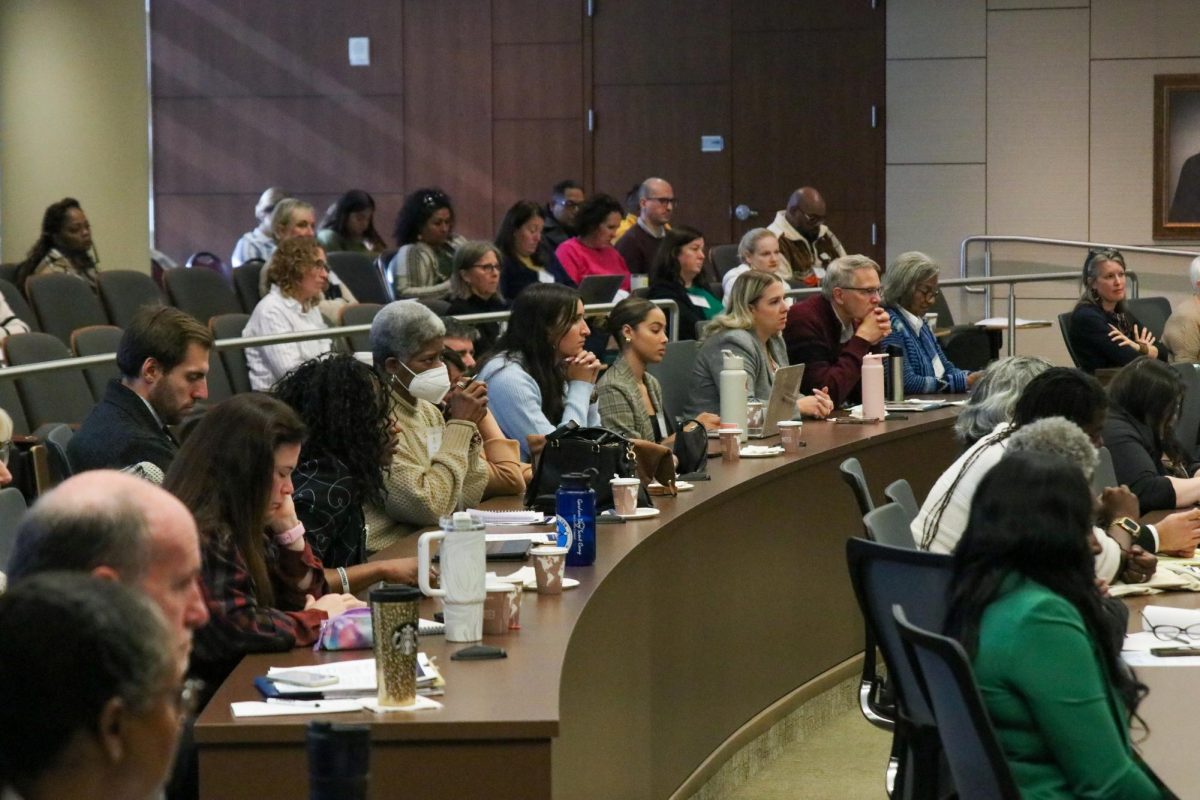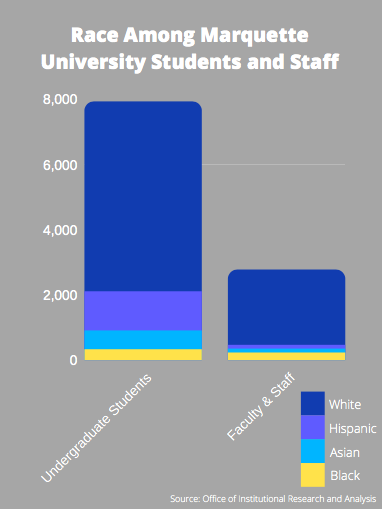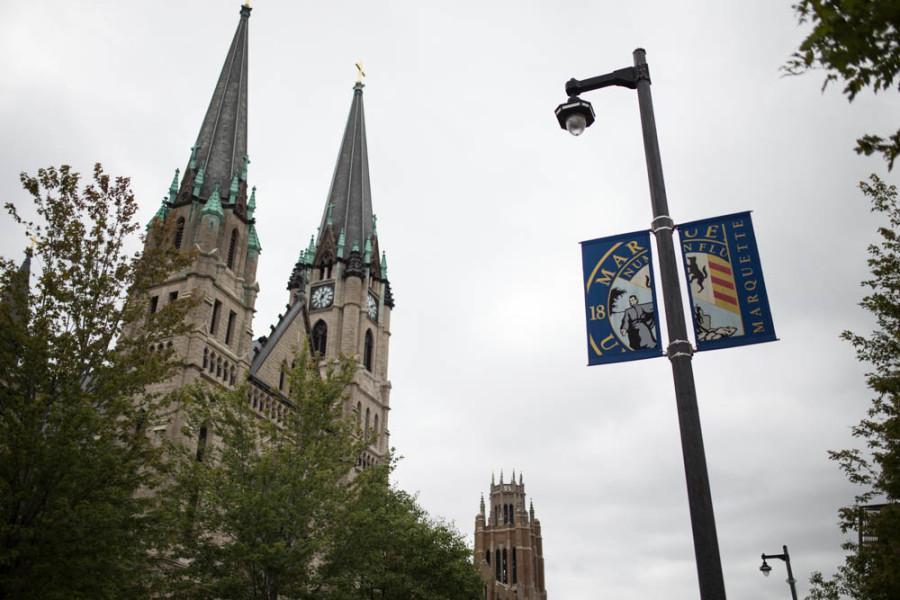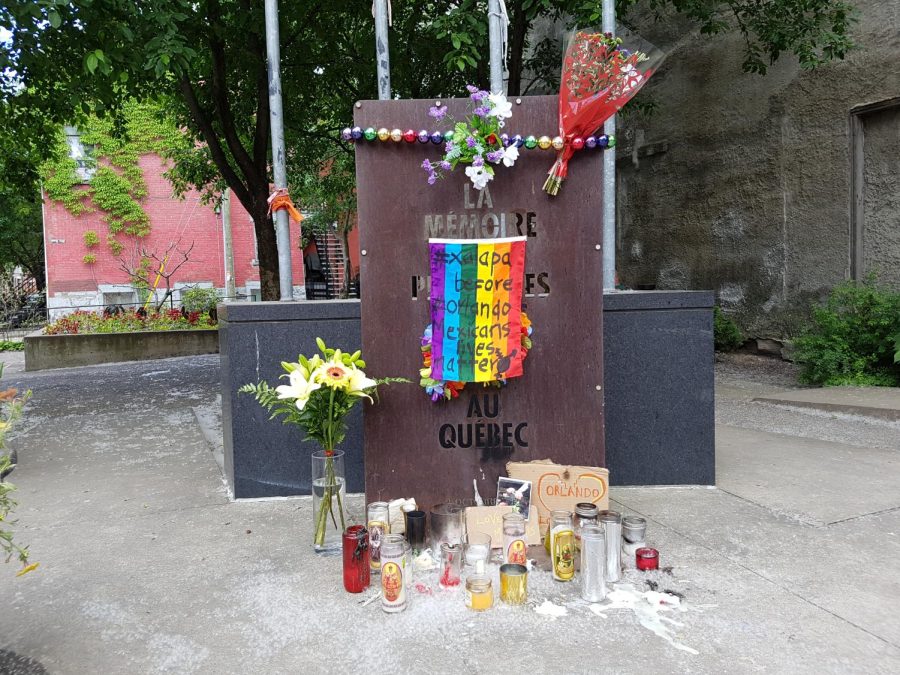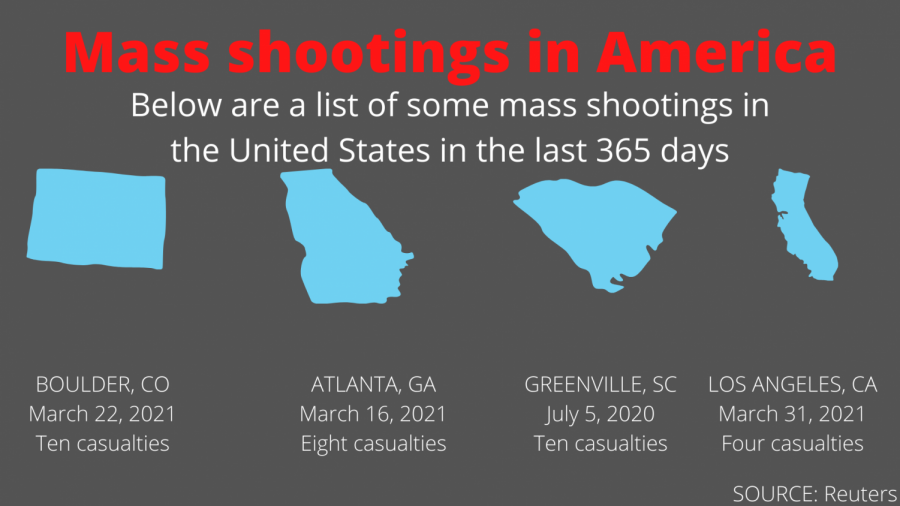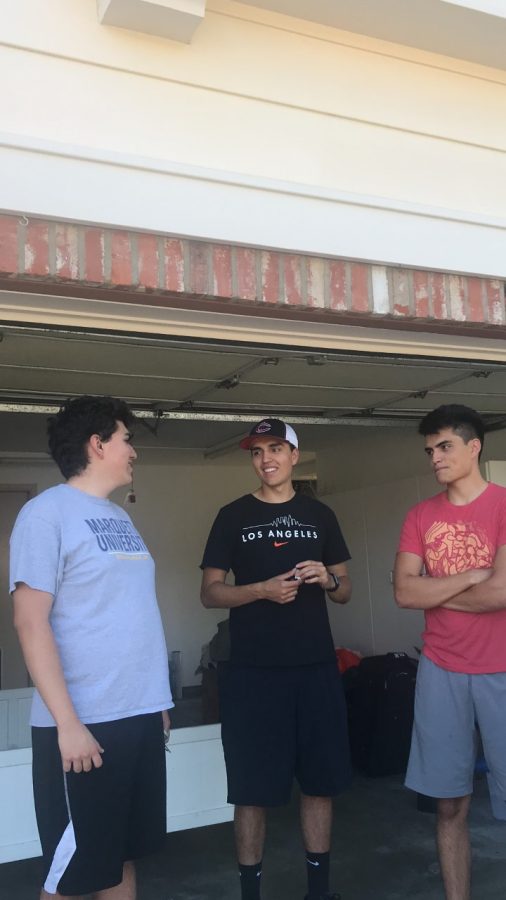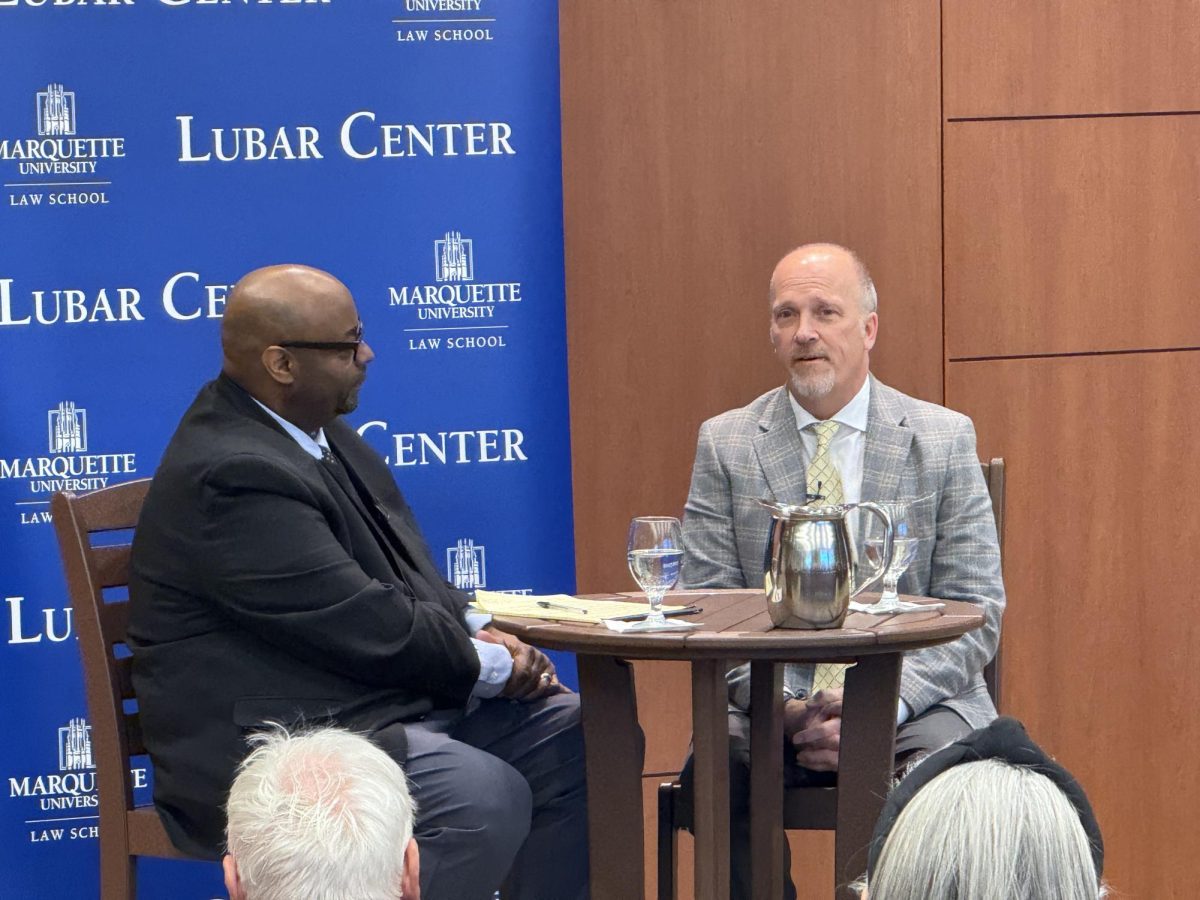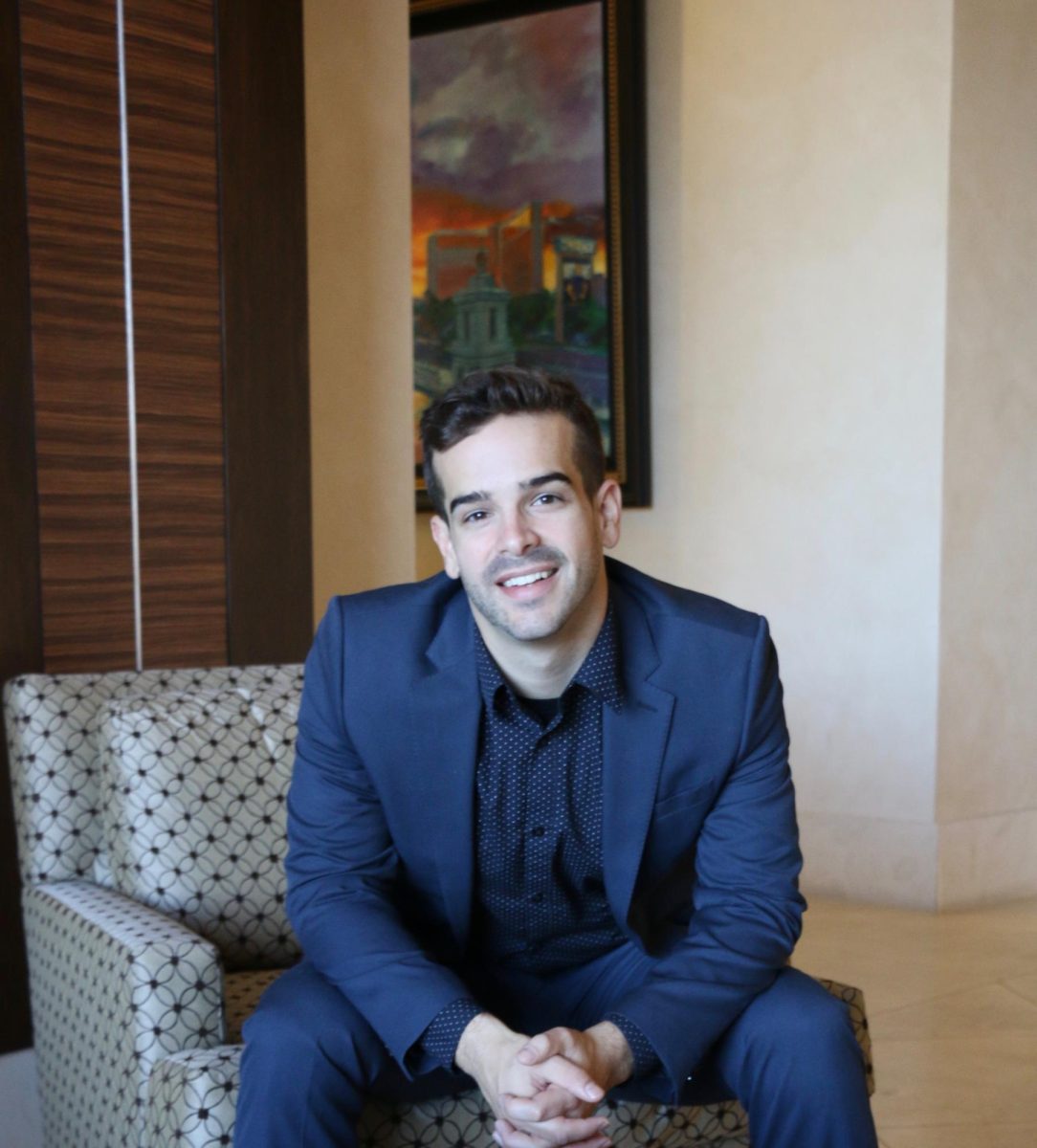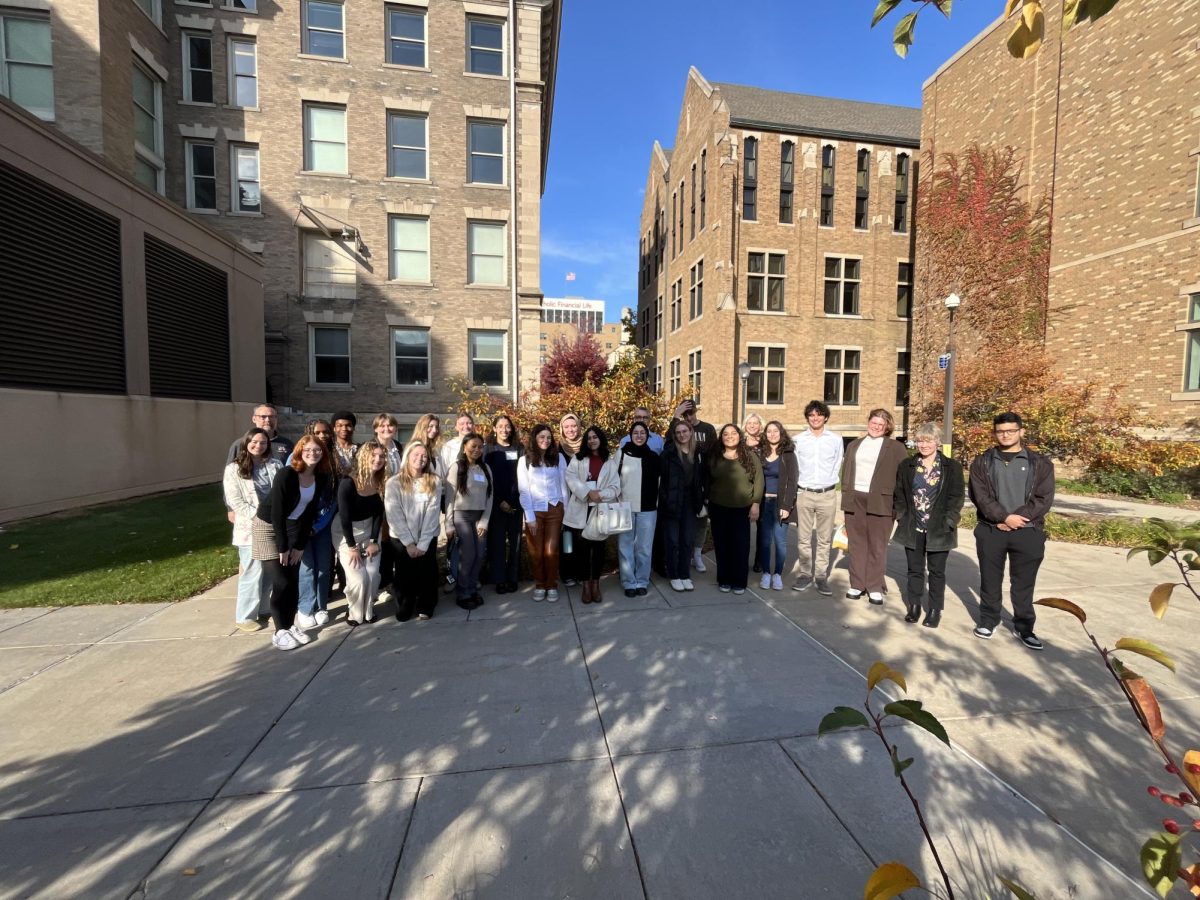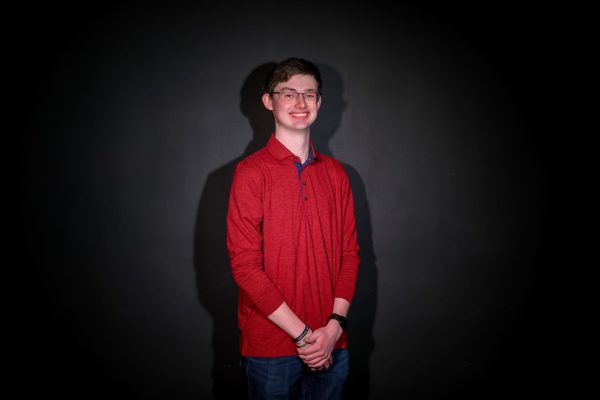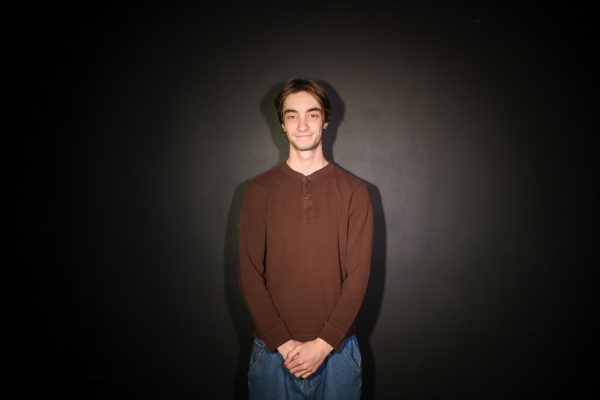Students and members of the Milwaukee community joined together at the Lubar Center on Thursday and Friday to connect at the Marquette Law School Andrew Center for Restorative Justice Conference. The event focused on taking a healing approach to preventing gun violence in the community.
The two-day conference began on Thursday evening with the premiere of “Mending Our Wounds: A Restorative Circle for Gun Violence Healing and Prevention,” a film produced by the Marquette Law School.
The film showed a circle discussion with members of the Milwaukee community who have been impacted by gun violence, including survivors, healers, first responders, violence interrupters and peacemakers.
The conversation in the film was led by Mary Triggiano, Director of the Andrew Center for Restorative Justice, clinical professor of law and former Chief Judge of Milwaukee County.
“Restorative justice offers a unique and profoundly human approach to addressing harm,” Triggiano said in the film.
Restorative circles bring together individuals with similar experiences to share their stories and make connections to promote healing. The approach is one that was encouraged throughout the conference in shaping reactions to hostility.
“If we are given space to tell our stories, to talk about the traumas we’ve endured, to talk about the harms, we’re less apt to pick up a gun to resolve conflict,” Triggiano said.
The group of nine participants in the film discussed their own pain and experiences before describing how they have seen harm repair in the community. Passed around the circle was a wooden dove, representing peace while also serving as a talking piece and indicator of the current speaker.
Following the showing of the film, a live Q&A panel took place with eight of the film’s nine speakers, who were together for the first time since the recording of their conversation.
“We had an instant connection,” Colleen Trevino, an associate professor of surgery at the University of Wisconsin-Milwaukee and trauma nurse practitioner at the Medical College of Wisconsin, said. “It was very innate. When we met, we just all connected with each other. That’s where [this approach] brings everybody together, we’re all very human in that.”
Involved in the group were members of 414Life, a community and hospital-based violence intervention program in Milwaukee. Since late 2018, the program’s violence interrupters have mediated over 250 conflicts in the community by using outreach and mentorship to prevent retaliatory gun violence.
“The piece that works is that we have the 414Life team,” Becca Laszkiewicz, trauma nurse navigator at Froedtert Hospital and member of the circle, said. “I wouldn’t be as successful in my role at getting people to trust me without that team. I can work with them every day if I’m having trouble connecting with someone.”
Friday’s portion of the conference spanned from 8 a.m. until its conclusion at 3:30 in the afternoon. It included panel discussions, presentations and a keynote speaker that navigated gun violence across different settings.
Sessions drew from the handling of gun violence in public policy, prevention work in the community, hospital-based prevention and an approach to restorative justice through ministry.
While the event was open to all members of the Milwaukee community, the setting of the conference at Marquette brought in participants from all stages of life to engage with the impacts of gun violence.
“[Restorative justice] is important for law students and undergrad students, and we had high school students come in, because everyone’s impacted by that harm in some way,” Triggiano said. “We know the devastating effects of gun violence and we know schools are impacted by gun violence, from universities to high schools to grade schools to middle schools.”
During the film and throughout the conference, participants shared their support for the human healing approach to preventing gun violence and the difference that it can make in the community.
“I firmly believe that how we acknowledge harm and trauma can lead to healing and safety for those who have been harmed, accountability and compassion for those that have caused harm, stronger relationships and ultimately, safer communities,” Triggiano said in the film.
Students at Marquette can get involved in taking action with March For Our Lives, a student organization working to end gun violence.
This story was written by Lance Schulteis. He can be reached at lance.schulteis@marquette.edu.


